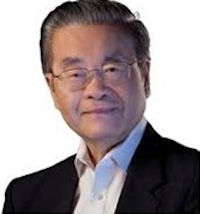IEEE EDGE 2021 - Keynote Talks

EDGE 2021 - Keynote 1
Stephen S. Yau, Arizona State University
December 18, 1:20 - 2:00 UTC; 9:20 - 10:00 Beijing Time
Challenges & Opportunities for Developing Effective Edge Computing for Smart Cities
Smart cities rely on the trustworthiness of using various IT technologies with a lot of relevant data and computing continuously. With the recent rapid development of various technologies, such as smart and sensing devices, IoT and mobile networking, smart and big data collections and analyses, various computing paradigms and systems, and semiconductor technology, certain technologies, such as artificial intelligence and blockchain, which were not practical in many complicated applications due to lack of necessary supporting capabilities now become promising to develop trustworthy large-scale and complicated applications. In this address, the general services computing requirements fpr smart cities in various environments, including possible dynamic pandemics, will first be summarized, and the challenges and opportunities of using a broad range of emerging technologies to develop effective approaches to meeting these requirements will be discussed. In particular, some directions of improving the trustworthy developments in the domain of edge computing to satisfying certain requirements of smart cities will be discussed. Some suggestions on how to facilitate incorporation the dynamic technologies in computer science and engineering education will be mentioned.
Professor Stephen S. Yau joined ASU in 1994. He is a professor in the School of Computing and Augmented Intelligence. He was professor and chair of the Department of Computer and Information Sciences at the University of Florida from 1988 to 1994. In 1961, he joined the faculty of Northwestern University, Evanston, Ill., and later became the Walter P. Murphy Professor and Chair of the Department of Electrical Engineering and Computer Science there. He has published more than 210 journal and conference papers and his research has been supported by NSF, AFRL, ONR, ARO, NIH and companies including Hitachi and Fujitsu.